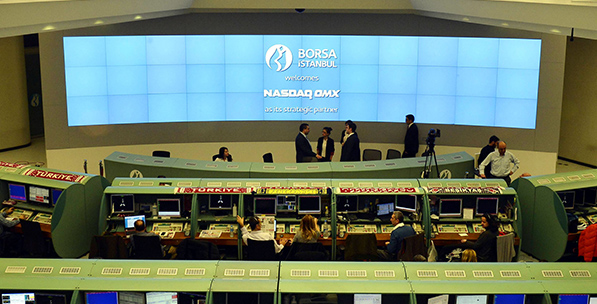Waves of economic globalization accelerated the pace of change in the global political economy and national units operating within that ecosystem. Therefore, a fair analysis concerning the transformation of Turkey's domestic economy should take contemporaneous developments in the wider world in the same timeframe. The international system witnessed a gradual shift from the unipolar post-Cold War regime based on undisputed U.S. dominance to a more heterogeneous political and economic configuration in the first decade of the new millennium. The consequence was the development of a larger space of maneuver for the emerging and regional powers to assert their respective politico-economic interest formulations and worldviews. On the other hand, the diversification of national/regional, hard/soft and public/private power assets began to create obstacles for the unilateral temptations of major powers.
Deepening and widening interdependence among the established and new actors in the global system became one of the fundamental features of the emerging order, which rendered issues of global governance more vital.
Against this backdrop, the emerging powers of the multipolar global system, chiefly exemplified by the BRICS (Brazil, Russia, India, China, South Africa) and MINT (Mexico, Indonesia, Nigeria, Turkey) countries, were involved in a "competitive game" to build up large international reserves, diversify their export markets, upgrade their technological know-how and increase their manufacturing capacities.
Viewed from this perspective, the transformation of Turkey's political economy over the course of the last decade arguably evolved in conjunction with prominent global dynamics. At the beginning of its reign, AK Party governments had to rehabilitate a fragile macroeconomic structure devastated by recurrent financial crises in 1989, 1994, 1999 and 2001 as a result of acute institutional inability to regulate financial liberalization. Fiscal indiscipline and populist redistribution have been the characteristics of incumbent political parties in the history of Turkey's political economy, hampering the sustainability of economic growth and developmental momentum.
But in the aftermath of the twin crises in 2000-2001 the pursuit of fiscal discipline and prudence in macroeconomic management gradually became the norm, while political stability and policy coordination advantages of successive single-party governments improved the effectiveness of structural reforms. In the early 2000s, substantial reforms were accomplished in critical areas such as the regulation of banking and financial markets; management of public debt and expenditure regimes for increased fiscal discipline; reinforcement of the independence of the central bank and autonomy of regulatory agencies; and streamlining the subsidies for agricultural producers and state economic enterprises. Over time, crucial institutions holding the pulse of stability, such as the Turkish central bank and Banking Regulation and Supervision Agency (BRSA-BDDK) developed substantial human and governance capacities to the extent that they became innovative models for the developing world before, during and after the global economic crisis in 2008.
Taking due advantage of favorable global liquidity conditions, Turkey displayed a shining economic performance associated with high economic growth, fiscal discipline, single-digit inflation and record inflows of foreign direct investment (FDI). Particularly important among these was the issue of FDI as with the impetus provided by the start of EU accession negotiations; the country managed to attract unprecedented amounts of inward investment. The annual FDI figure for the critical year of 2007 just before the global crisis was around $20 billion which represented a record in the republic's history and exceeded the total FDI inflows between 1980 and 2000 as a whole. Although there was an anticipated drop in FDI inflows at the height of the global crisis, a speedy recovery meant that the figures became sta







